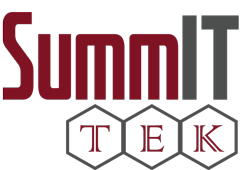What’s in a business name? There are plenty of examples of successful companies whose names are tied to their task and purpose, but how necessary is it to become successful? You may want to associate your brand to a family name or some variation thereof, while others might choose a less meaningful approach. Would you be a different person if you went by a new name or was Shakespeare right when he said “…Any other name would smell as sweet.”? The real question is, would your business be different, and would it prevail or suffer if given a certain type of name? Let’s take a look at some examples out there.
On one hand, could an abstract but catchy name help place you ahead of your competition? We do after all live in a world of first impressions.
Some businesses don’t have the most meaningful backstory when it comes to their name. Google, if you didn’t know, came from a typo. The original name was googol, which is the digit 1 followed by 100 zeroes. An associate of the two co-founders, Larry Page and Sergey Brin, checked to see if the domain name was taken, but accidentally searched for “google.com” instead of “googol.com.” Co-founder Page preferred the name google and registered the domain name for Brin and himself on September 15, 1997.
There are company names that are absolute nonsense. Haagen-Dazs is immediately recognized as a Dutch ice cream company, but did you know the name doesn’t mean anything? It’s completely made up! Reuben Mattus wanted to memorialize Denmark for their role during World War II and thought the name sounded Danish. Quite surprising given the importance that restaurants and other food companies place on branding.
Many restaurants lean heavily on literary references to pull in potential new customers. The Walrus (with locations in the National Harbor in DC and Columbia, Maryland) gets its name from the titular character in Lewis Carroll’s poem “The Walrus and the Carpenter”, who lured a bunch of oysters to their demise on a dark beach. No surprise, the restaurant specializes in fresh raw oysters!
On the other hand, there is the more direct approach.
Microsoft came out of a blending of the word’s microprocessor and software because they were, at their inception, a company that developed software for microprocessors. You couldn’t get much more to the point.
These names are slightly changed for the sake of convenience, but the overall implication of the company’s function remains the same. This is the middle ground that doesn’t lean too heavily on a snappy name.
We here at Summit-Tek recently underwent a name change ourselves. We recognized that our original name, Summit Brand Protection, didn’t represent our function and purpose as a business. We chose “Summit-Tek” so our clients could have a clearer idea of what we are about. Our firm provides expert consultant services in network and information security and navigating the federal government space, and frankly “Brand Protection” didn’t resonate with that message. The success of a business isn’t always directly tied to a clever name or a smart reference, but in a world where miscommunication is becoming standard practice, Summit-Tek chose a name that reverberates with the technology sector.
Naming your business is no small matter. It may not define your business, but it certainly is a constant focal point. As a first impression you want your business name to stand out. In naming your business you want your brand and your company to be well represented, you want it to be memorable, and if you prefer, it can have a special meaning to you. It might depend on the industry you are in as for whether you opt for an abstract name or the direct approach. Although, from the examples above, it might just come down to marketing, branding, and the quality of your product. “Any other name would smell as sweet.” Afterall a business name is a calling card that you and your team need to feel confident in order to build a robust brand.


